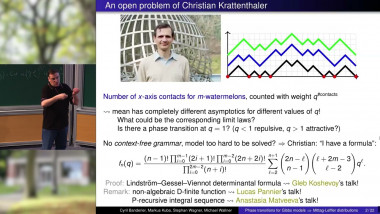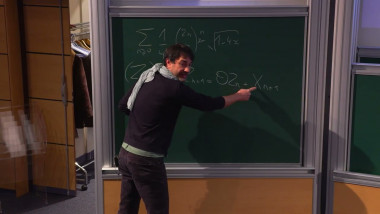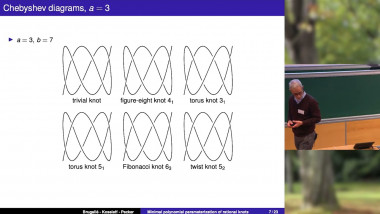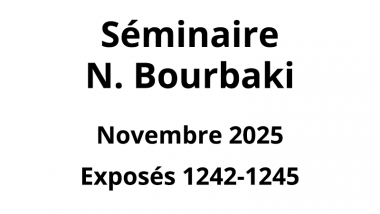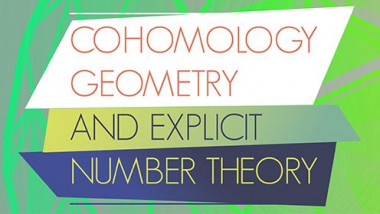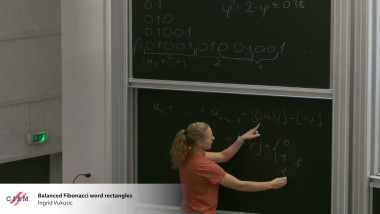Apparaît dans la collection : Probability and Geometry in, on and of non-Euclidian spaces / Probabilités et géométrie dans, sur et des espaces non-euclidiens
Motivated by Krioukov et al.'s model of random hyperbolic graphs for real-world networks, and inspired by the analysis of a dynamic model of graphs in Euclidean space by Peres et al., we introduce a dynamic model of hyperbolic graphs in which vertices are allowed to move according to a Brownian motion maintaining the distribution of vertices in hyperbolic space invariant. For different parameters of the speed of angular and radial motion, we analyze tail bounds for detection times of a fixed target and obtain a complete picture, for very different regimes, of how and when the target is detected: as a function of the time passed, we characterize the subset of the hyperbolic space where particles typically detecting the target are initially located. We overcome several substantial technical diffculties not present in Euclidean space, and provide a complete picture on tail bounds. On the way, we obtain also new results for the time more general continuous processes with drift and reflecting barrier spent in certain regions, and we also obtain improved bounds for independent sums of Pareto random variables. Joint work with Marcos Kiwi and Amitai Linker.
